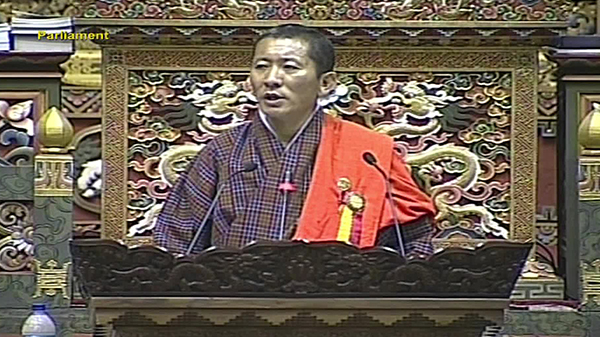 In the Parliament today, Prime Minister Dr Lotay Tshering presented the State of the Nation Report to the Parliament. Lyonchhen reported on health, education, economy, hydropower, agriculture and tourism among others.
In the Parliament today, Prime Minister Dr Lotay Tshering presented the State of the Nation Report to the Parliament. Lyonchhen reported on health, education, economy, hydropower, agriculture and tourism among others.
After reporting the state of these sectors, the Prime Minister also presented way ahead plans and initiatives in these sectors.
According to the State of the Nation Report, an average of three health facilities are available for every 10, 000 Bhutanese. The Prime Minister said although health services in the country is free, the country do not have quality health care service at the right time.
“I know that people in the country do not get quality health services at the right time. Everyone knows that the health services in Bhutan are free. But many people are left without access to this. People have to walk and travel for days to avail the service. And they have to stay in the capital to avail services which leads to huge expenditures,” Dr Lotay Tshering, the Prime Minister informed the House.
Although 96 per cent of the population has access to a health facility located within two hours of walking distance, he said there is no quality of the service.
Similarly, although education is free in Bhutan and has achieved significant literacy rate, the quality of the education is not good enough to meet the required knowledge and skills for a job later.
“A degree certificate is not what is important to find a job. For someone to find a job that can benefit the country and oneself skills are the requirement, TVET is another important sector. With good intentions, the TVET programme was initiated but the quality is again doubtful,” Lyonchhen said.
He also added, besides unemployment, many youths have not been able to get a job of their satisfaction. This he said indicates the poor economy of the country.
“As Bhutan graduates from the least developed countries and enters the category of developing countries, it seems that the economy of the country is developing. But if we say the economy is improving, there are many graduates without employment. Unemployment issues should decrease with improvement in the economy of a country. But when this does not happen, it shows that the situation of the country’s economy is weak.”
The Prime Minister added that it is of great joy to know that Bhutan will soon Graduate from the least developed countries to developing countries. This, however, is of great concern especially in getting foreign aids.
With the current debt of Nu 210bn in the country, he added that all sorts of debts are to be concerned even if it is to do with hydro powers.
He also said that as of now, Puna Tsangchu I is targeted to be completed towards 2024 and 2025 and Puna Tsangchu II towards 2022 and 2023. The government will make sure that the projects get completed on the expected timeline.
In terms of Agriculture, the Prime Minister said Bhutan still imports a huge amount of what is consumed by the people in the country especially rice. To curb the issue, organic farming has been identified as one of the flagship programmes of the 12th FYP.
And in the tourism sector, he said, it is the second revenue generator with over 70 M USD in a year. However, he said a strong tourism policy is must and therefore the drafting of such a policy has already begun.
The Prime Minister also presented that there are 26 active mines and 41 active quarries in the country. However, the revenue generated from this sector is less than 3.5 per cent and therefore he said Mines and Minerals Bill is important to regulate the sector.
He also said the poverty rate has decreased to about 8 per cent and is not much of a concern. The report states that focus needs to be drawn on the country’s intangible culture as some of the local dialects, songs dances, lozeys, festivals and rituals are disappearing. The report also states that socio-economic development demanding conversion of forests for other land uses and growing waste generation are some major issue. The Prime Minister also reported on the state of governance, state of women and children, and state of news media among others.





